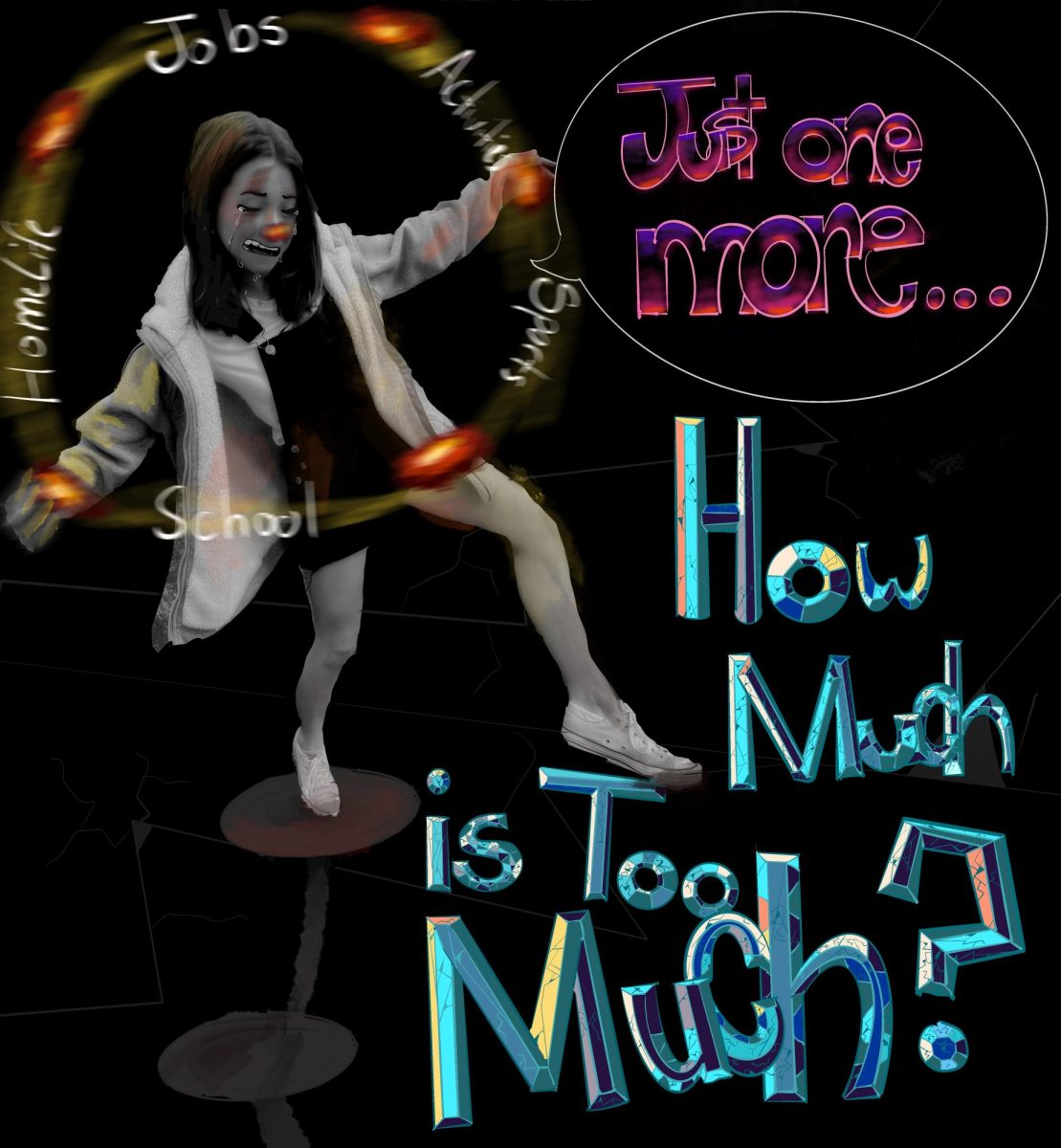Entering classroom 5100, there’s an array of forensic lab equipment displayed throughout the desks in preparation for fingerprint analysis. As students walk to their table groups, Forensic Science and Aquatic Biology teacher Cydney Tinsley happily greets her students and begins explaining the daily agenda.
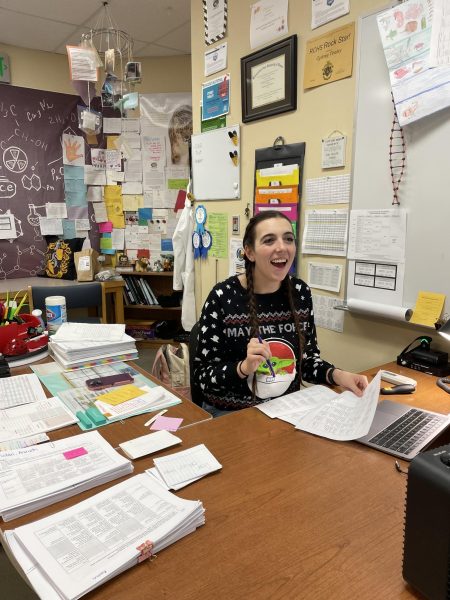
Cydney Tinsley began teaching at Rock Canyon three years ago and previously taught eighth-grade science at a charter school in Aurora.
Before becoming a teacher, she studied biology and chemistry at Michigan State University (MSU) and worked in a genetics lab, a microbiology lab and as a surgical assistant in a dermatology firm. She also loves to bake and considers herself a great baker.
Tinsley teaches two courses, Forensic Science and Aquatic Biology.
“Forensic Science is where we can take science and law and combine them together, which is really fun. We get to take the principles of biology, chemistry and physics to prove how we know who did [a crime] and how we can prove it,” Tinsley said. “Aquatic Biology is where we look at everything ocean-based. We talk about other bodies of water but mainly focus on the ocean. We study ocean geography and evolution, vertebrates and invertebrates, myths and legends, all the fun stuff around the ocean.”
Tinsley strives to include interactive projects for her students to complete. Whether that be through dissecting frogs or finishing a blood lab, her students take part in class activities frequently.
“I have a pretty great job. I like just getting to be goofy. I get to teach classes where we get to be goofy and relaxed and I really like that,” Tinsley said. “It’s not as serious and I feel like students can come in and still have to do the work, but I don’t feel like it’s as stressful. I like that kind of environment.”
Throughout the year, Tinsley has made efforts to improve school safety. She applied for the Rock Canyon Community Alliance (RCCA) grant and received funding to build a “Stop Bleeding Kit” for each school pod. The kits include medical supplies such as compressed gauze, tourniquets, shears and more.
“I applied for the grant because all of our first aid kits are at the front office so I got traumatic bleeding kits for all the pods to be more prepared in case of an emergency,” Tinsley said. “Emergencies aren’t just school shootings, which is what a lot of people tend to believe because that’s what we’ve seen in the media. Beakers explode because they get too hot or could fall and cut someone. Or in science class, you use a scalpel and could accidentally cut yourself. I just wanted a faster way to respond in that instance.”
Being a teacher, Tinsley hears a lot of interesting things from her students. She plans on writing a book from a document she keeps of anonymous quotes she hears in her classes.
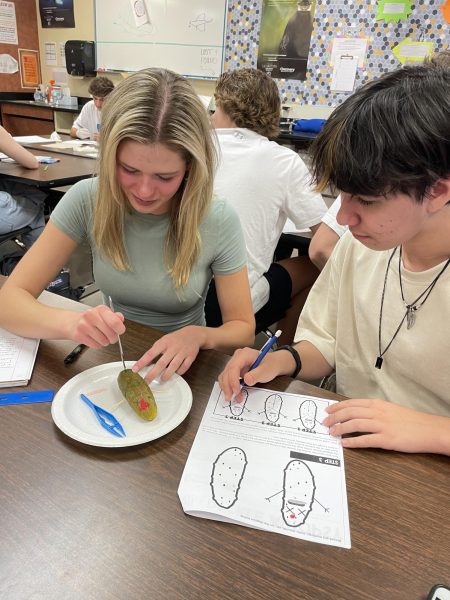
“I don’t use names or put the names of the students in my document, it’s just the things that they say. Everything is 100% out of context, right? It’s just like if they said something that cracked me up, I just add it to my list. Half the time no one knows that I heard it. I’m going to turn it into a book and try to get it published. It’ll be awesome,” Tinsley said.
Forensic Science is currently only a semester-long course, but Tinsley plans to change that. She applied for her Career and Technical Education (CTE) license this year, and hopes to make it a year-long subject.
Getting approved includes necessary involvement from the state. Tinsley has put in over 1000 hours into Forensic Science and must prove she has enough content knowledge to teach at a college level on the subject.
“I majored in Biology with a concentration in microbiology, and then a minor in chemistry, but I worked really really hard to make myself super knowledgeable on [Forensic Science]. I read full textbooks, talked with people in the field, and used a lot of online resources to help me create a curriculum that is realistic and accurate,” Tinsley said.

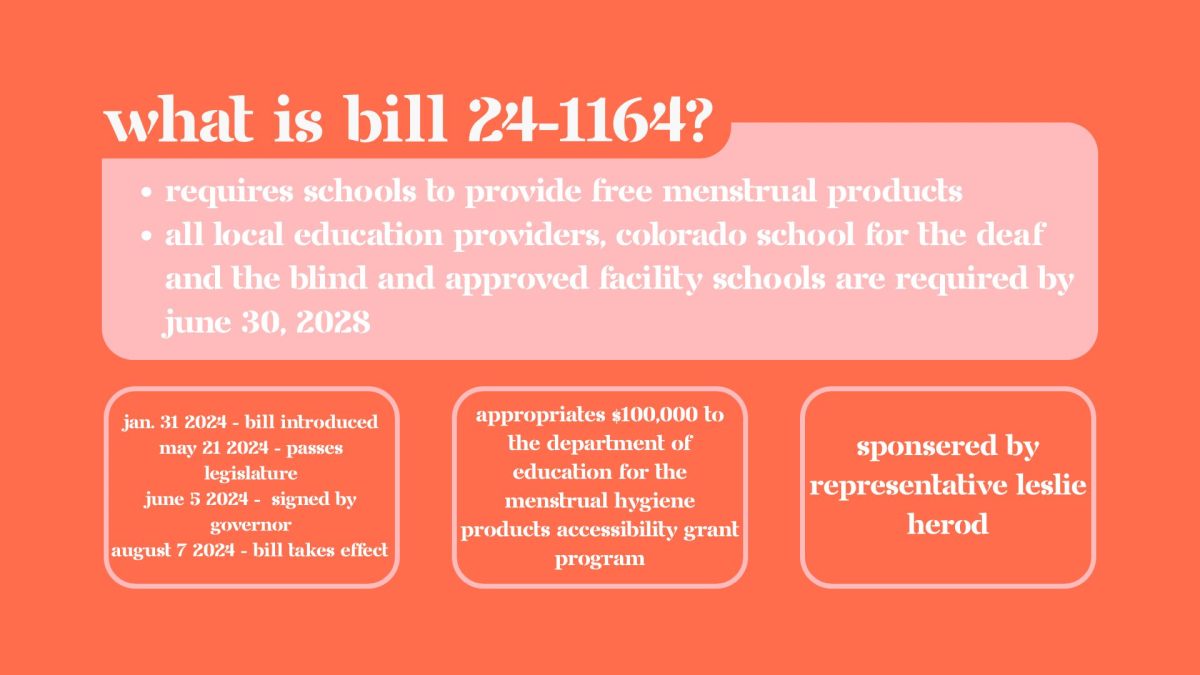

![Minutes before the Activities Fair in the gym, president Abhi Gowda ‘26 prepares the stall for his club Helping Hands, Sept. 4. A relatively new club, Helping Hands was co-started by Gowda and focuses on assisting the homeless, and just last year they succeeded in raising a couple hundred donations to send to shelters. This year, they have goals to expand, with hopes to increase volunteer opportunities and take in-person trips to shelters, as well as extend their help beyond just homeless people. “The Activities Fair gives a lot of underclassmen the opportunity to really get to know the Canyon culture, and it gives them many opportunities for service and volunteering,” Gowda said. “[Through the Activities Fair,] I hope to find a bunch of new and passionate members about our club and just get our name out there and spread awareness to the cause that we’re fighting for.”](https://rockmediaonline.org/wp-content/uploads/2025/09/1-2-1200x885.jpg)
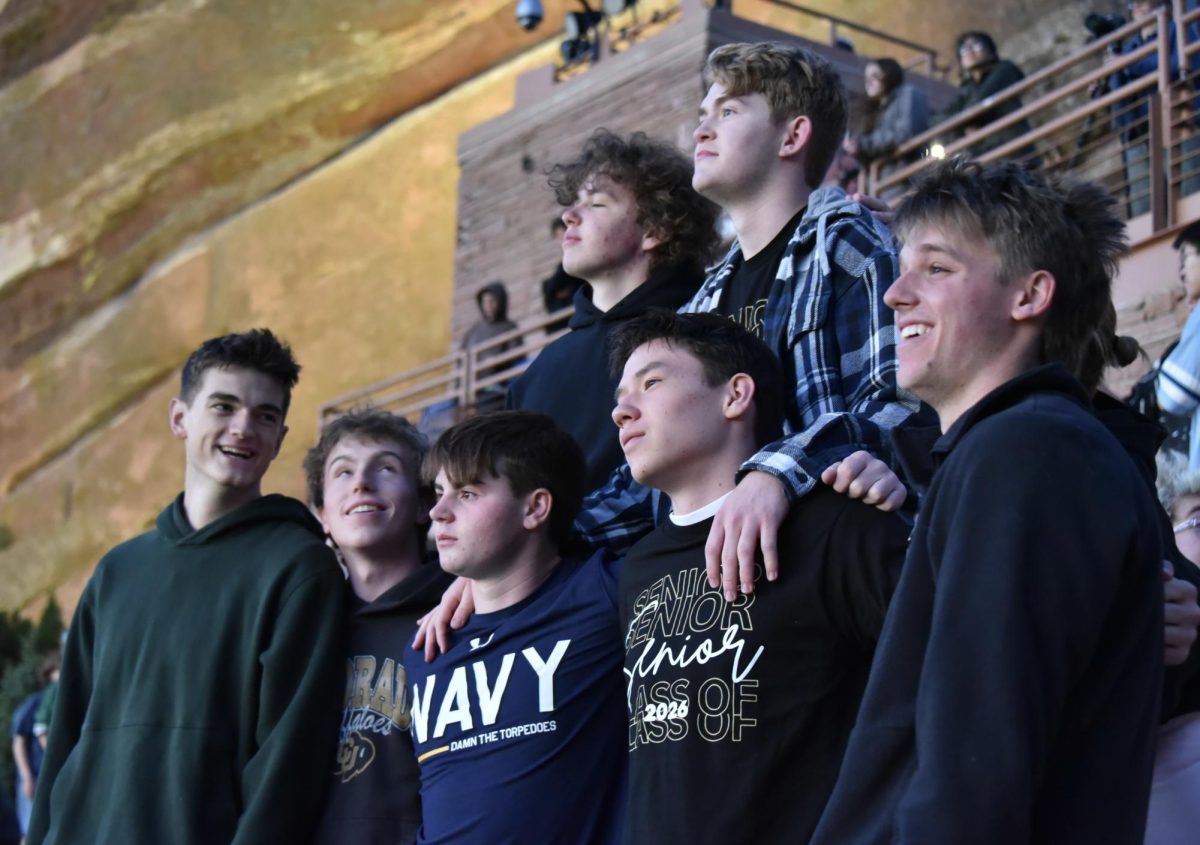
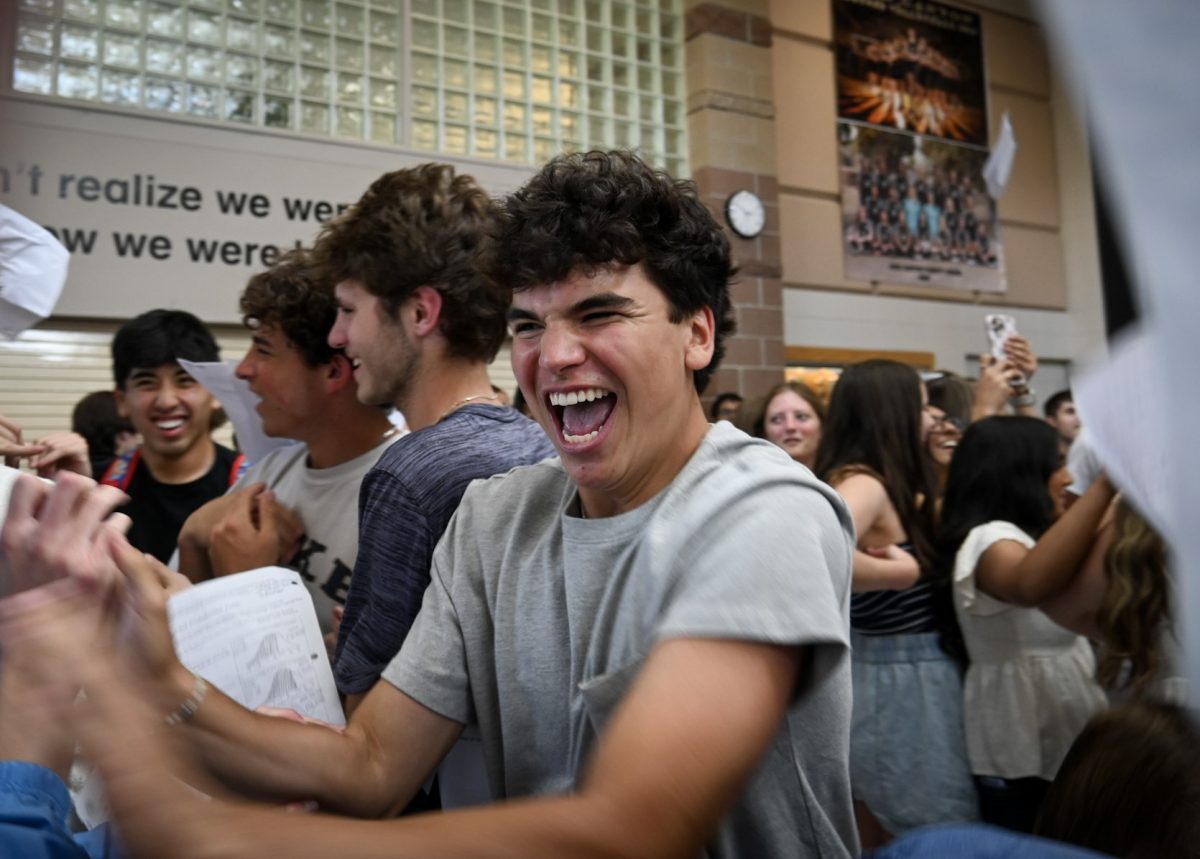


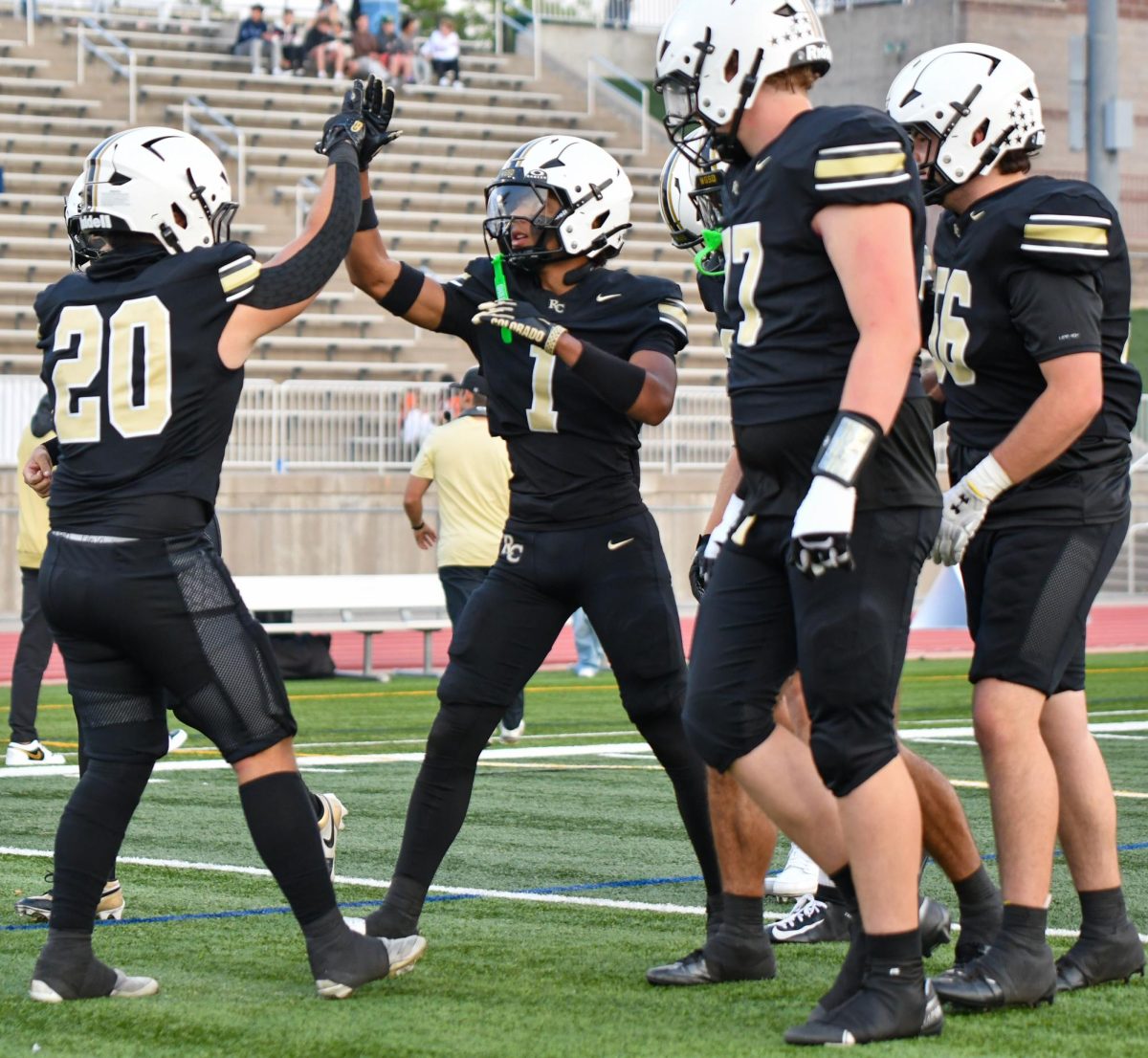
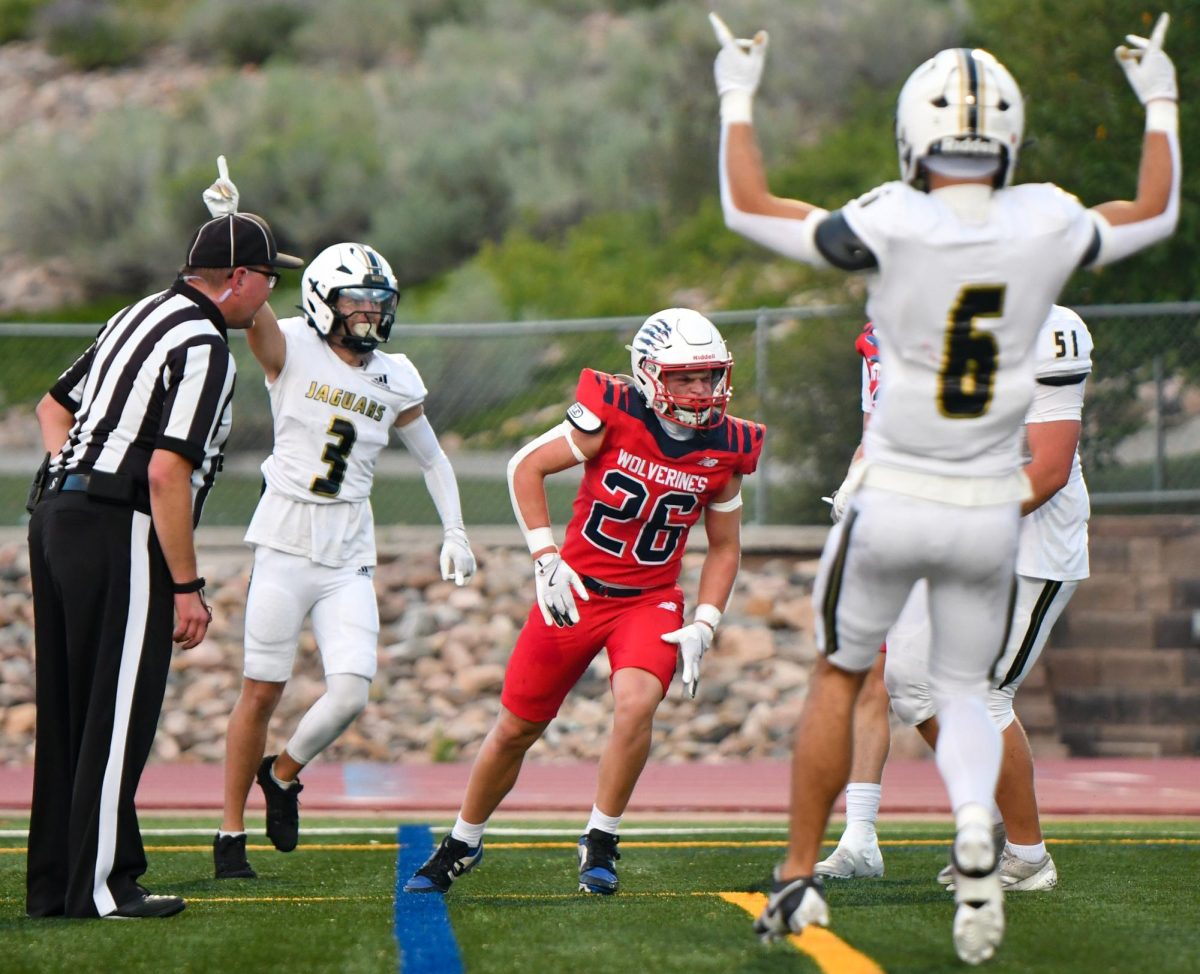

![The winter guard team makes fifth place at the state championship finals in the Denver Coliseum, March 30. The team performed to Barnes Country's “Glitter and Gold,” lead by coaches Margo Sanford, Blair Bickerton and Anna Orgren. In their class there were a total of nine groups participating, and the top five who made it to finals received a plaque. “[Walking onto the stage] is very nerve-wracking, but also very exciting as well. When you first start color guard there's a lot of anxiety and uncertainty when you first perform in front of an audience, but once you've done it for a while, it starts to become the best part of the season,” Ella West ‘25 said. “It's very fulfilling to see an audience react to something you've put your heart and soul into.”](https://rockmediaonline.org/wp-content/uploads/2025/04/Both-socal-media-nd-website-main-1-1200x846.jpg)

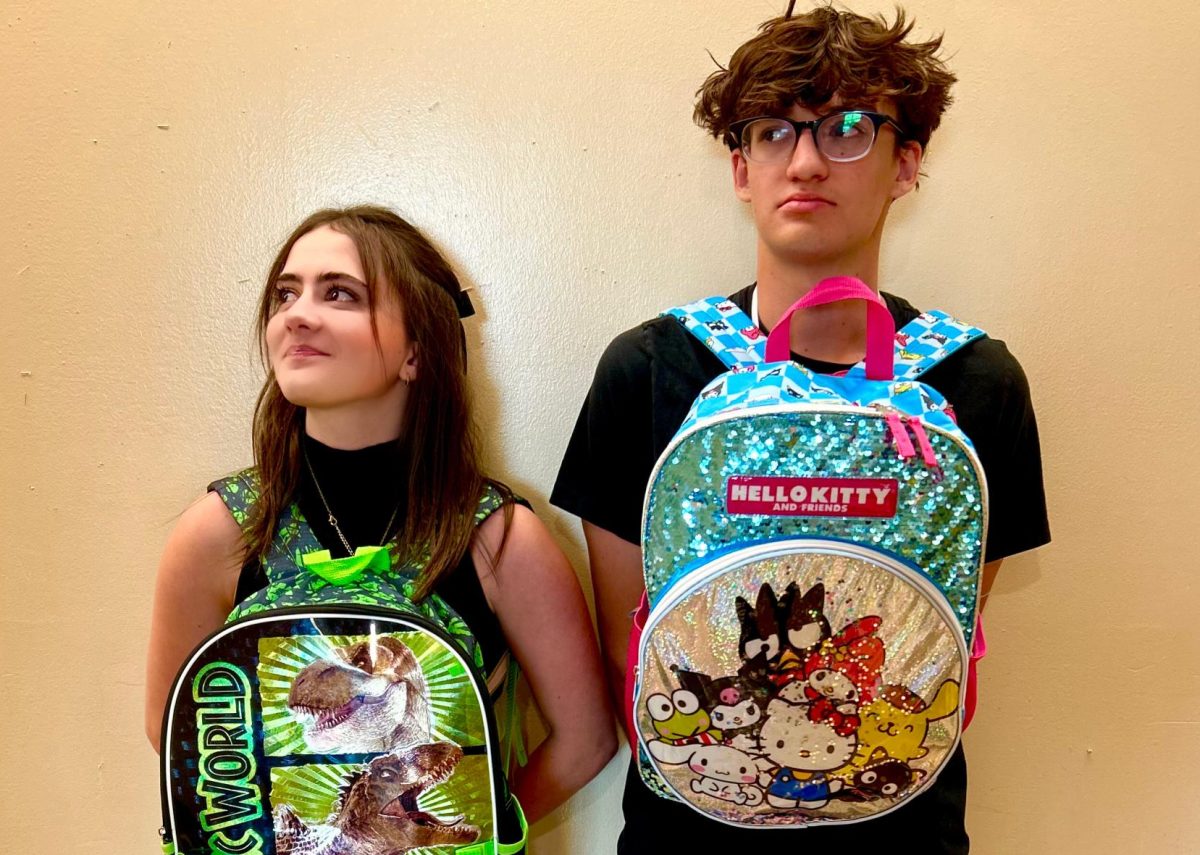
![April marks the 25th anniversary of Sexual Assault Awareness Month, created by the National Sexual Violence Resource Center (NSVRC). This month is to spread awareness of the harassment, assault and abuse that happens around the world. The symbol that represented the month was a teal ribbon; however, some survivors of assault create different symbols and movements like the TikTok trend in 2022, where survivors would tattoo Medusa on their body, in honor of her backstory in Greek Mythology. “I don't think [this month is known] at all. I rarely see anybody talk about it. I rarely see much of an emphasis on posting it online, or much discussion about it, and I feel like there needs to be way more discussion,” an anonymous source said. “I think just validating every experience that a person has gone through, regardless of the degree of it, the severity, is an essential step into making sure that people are aware that this is a very real problem in a society and that we need to do better in addressing it.”](https://rockmediaonline.org/wp-content/uploads/2025/04/IMG_0011-1200x900.jpg)


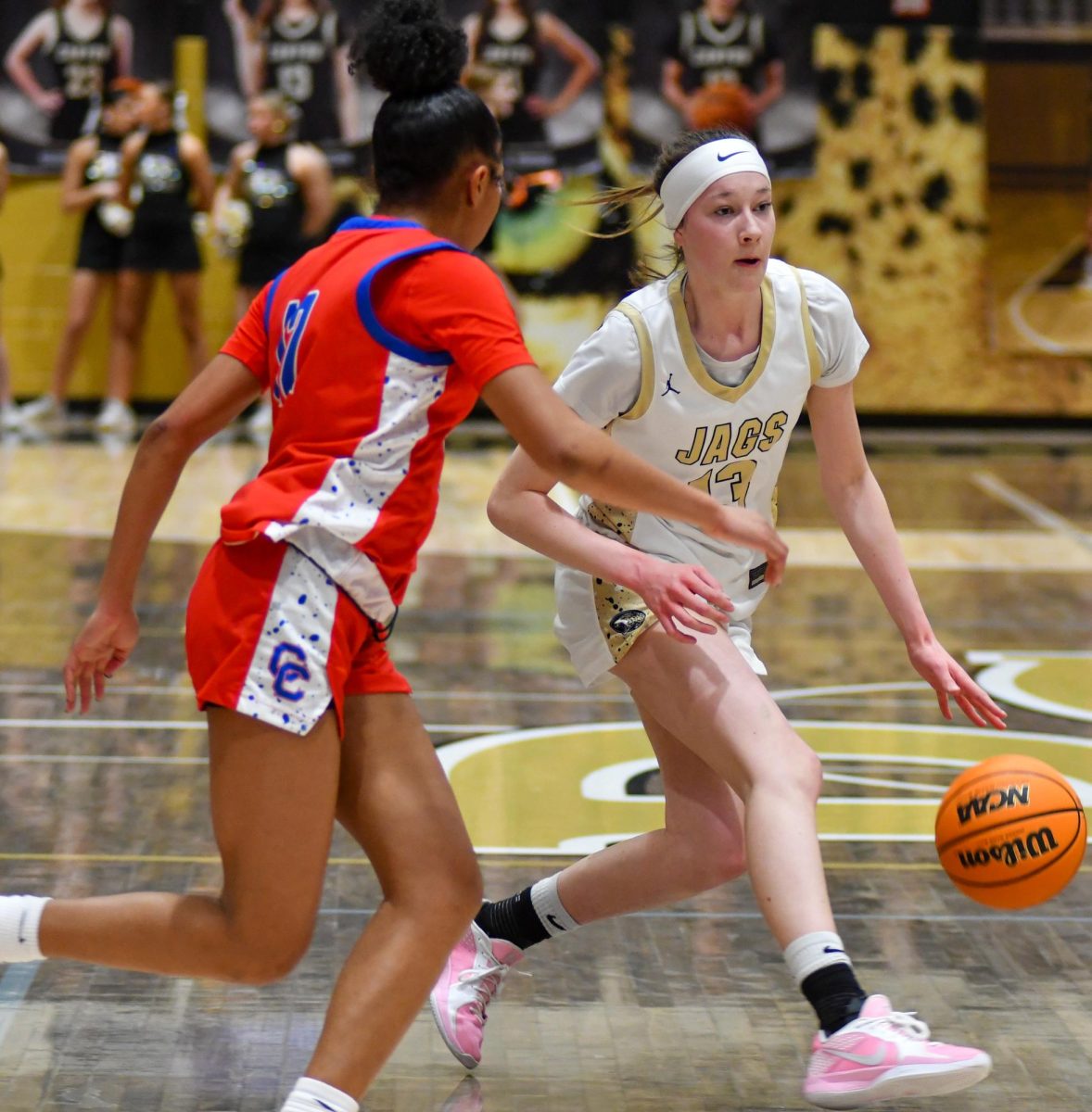





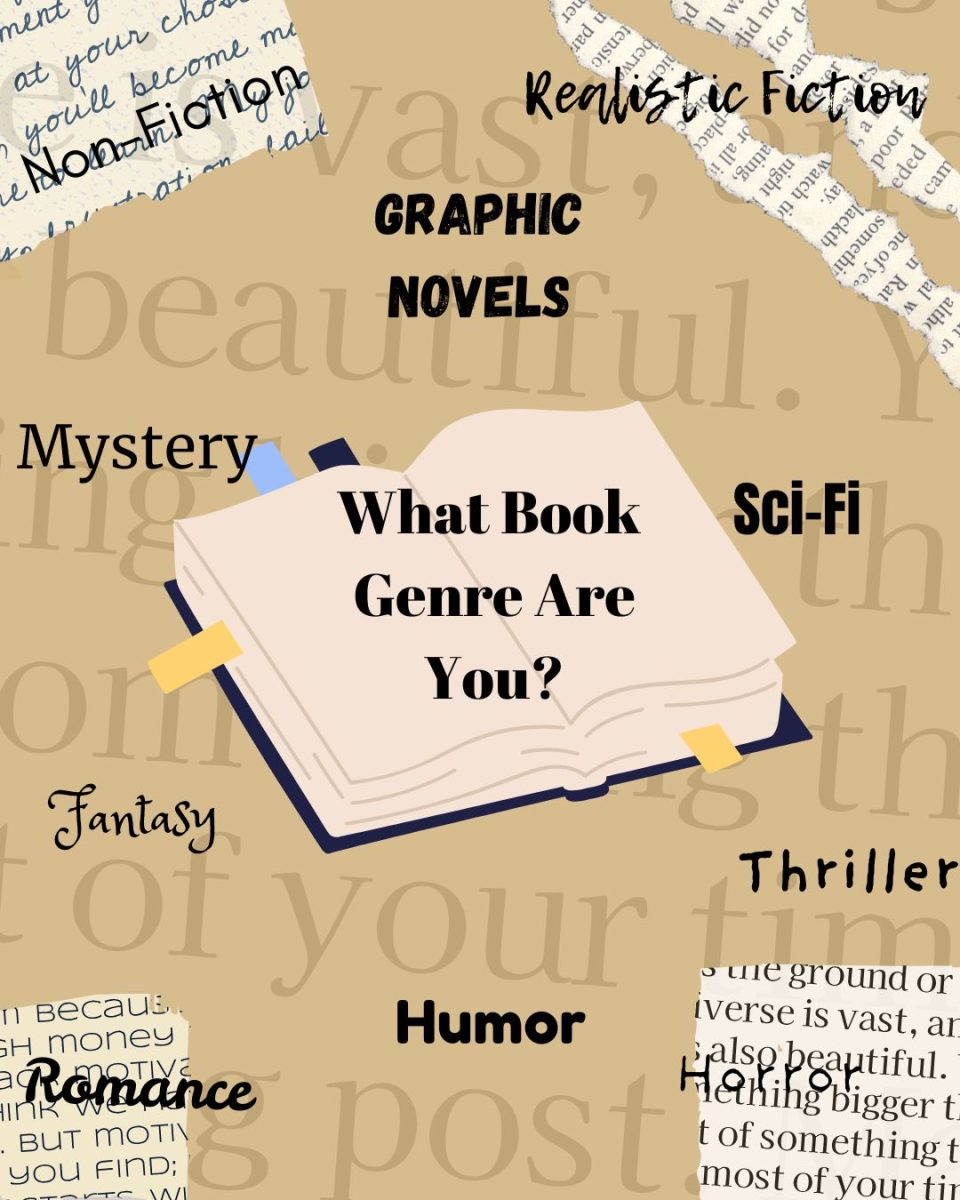
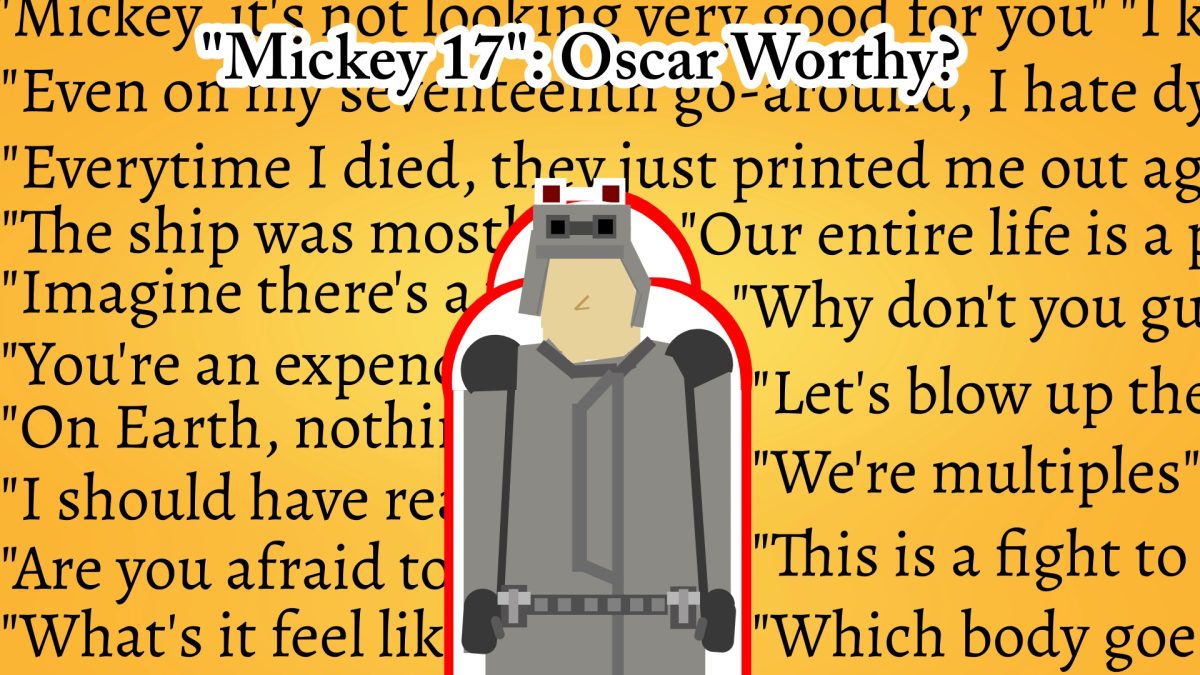

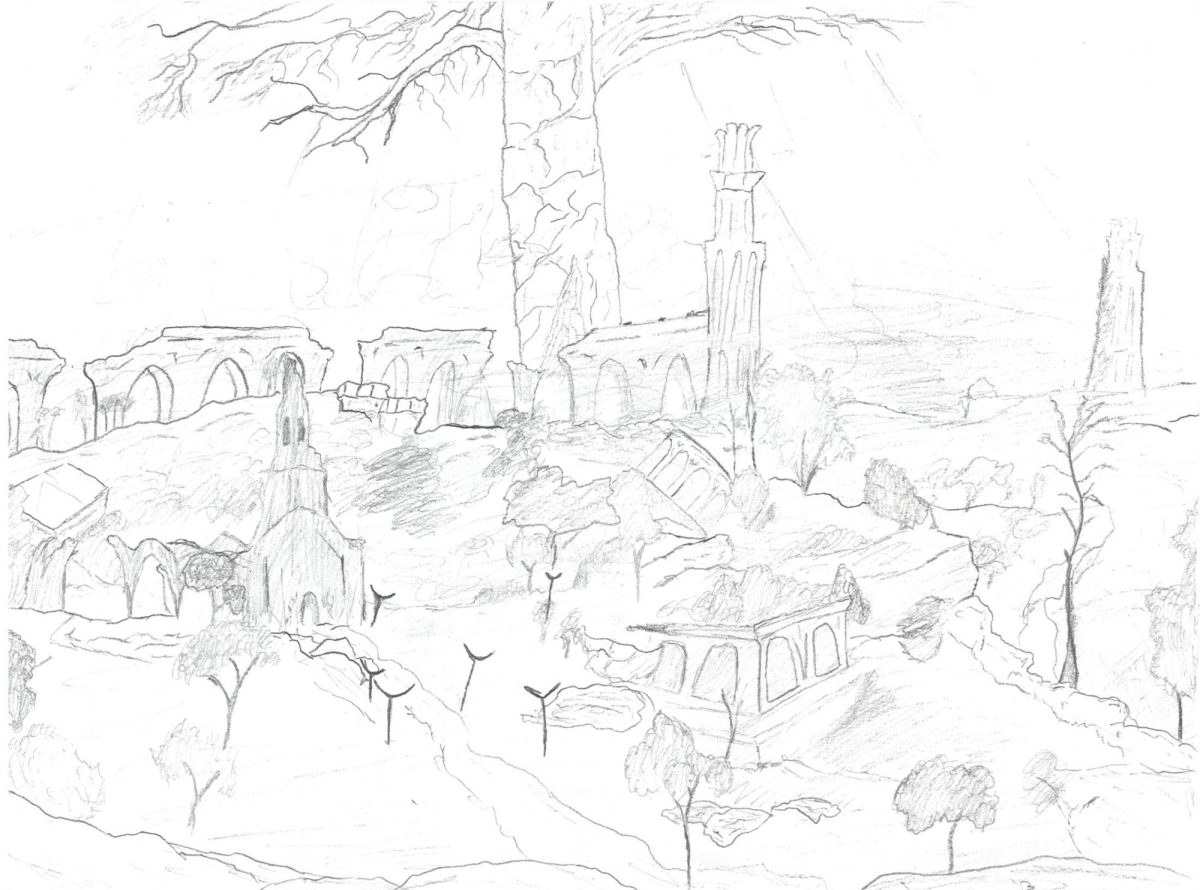
![Lesbian Visibility Day is April 26, and it’s a holiday to celebrate the lesbian community of the world. Lesbian Visibility day was established in 2008 by many queer activists and organizations who sought to raise more awareness for lesbian history and culture. “So this is why during Lesbian Visibility [Day] we celebrate and center all lesbians, both cis and trans, while also showing solidarity with all LGBTQ+ women and nonbinary people,” Linda Reily, in an article written by her, said.](https://rockmediaonline.org/wp-content/uploads/2025/04/Lesbian-Visibility-day.jpeg)
